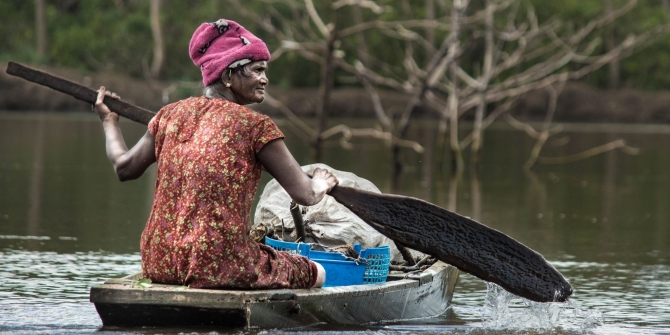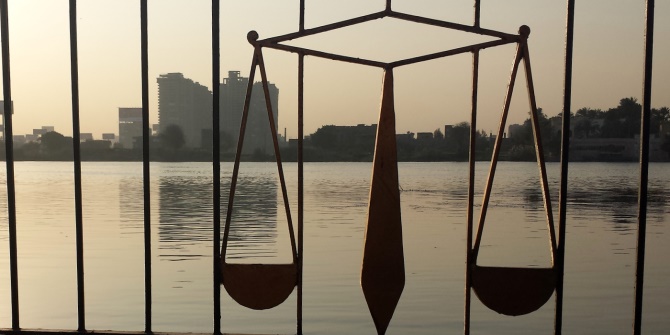 As the Pakistan @ 70: LSE Pakistan Summit 2017 approaches, Shema Bhujel reflects on LSE’s long-standing ties with Pakistan and introduces the four core topics that will be discussed as key issues which are shaping the future of this burgeoning nation.
As the Pakistan @ 70: LSE Pakistan Summit 2017 approaches, Shema Bhujel reflects on LSE’s long-standing ties with Pakistan and introduces the four core topics that will be discussed as key issues which are shaping the future of this burgeoning nation.
LSE’s connections with Pakistan go back more than a century when its Founders – Sidney and Beatrice Webb – visited Lyallpur, Peshawar and Lahore in 1911-12. LSE has welcomed some of its best students from Pakistan and every year applications and admissions continue to rise. The School has an active LSE SU Pakistan Society which organises a wide range of social and cultural events every term. This year, an LSE SU Pakistan Development Society was established to organise the inaugural Future of Pakistan Conference. The day-long event featured a number of high profile speakers, and provided platform in which a sitting minister, a professor and a student could sit at the same table and discuss strategies for Pakistan’s future.
In 2016 the Professor Craig Calhoun became the first serving LSE Director to go to Pakistan as he led a delegation on a week-long visit to meet students, LSE alumni and Government ministers and speak at universities in Islamabad, Lahore and Karachi. Building on the success of this visit, the first ever LSE Pakistan Summit will take place on April 10-11 in Karachi. Presented by Aman Foundation, Pakistan @ 70 will reflect on the country’s history as an independent nation and seek to reposition academic debates about Pakistan. It will also provide an international platform to debate and discuss topics of contemporary relevance and concern to Pakistan’s regional power on the global stage.
Philanthropy and Institution Building
State institutions are of fundamental importance for the development of a nation and in providing support to its citizens. Like other countries in the region, Pakistan has struggled to develop the range of institutions required to support the wider socio-economic development of its citizens. The excessive disparity between demand, supply and need has created a massive space for philanthropists, whose committed involvement and generous investment have especially benefitted poor and rural citizens. Philanthropists who have sought to ‘give back’ to society have provided institutions and services of fundamental importance such as primary schools, higher education institutions, health centres and health workers in rural areas, speciality hospitals, orphanages and homeless shelters, drug rehabilitation centres and legal counsel. In this panel, the roots of philanthropic activity in Pakistan will be explored through the personal testimonies of some long serving and significant philanthropists. It will outline the successes, challenges and prospects for this approach to institution building and will also examine how the government can work with philanthropic initiatives through incentives and partnerships.
Art and Modernity
Pakistan has traversed a complex political life in just 70 years and art has provided an important space for people to express and engage with the world around them drawing on both tradition and heritage, and contemporary and international trends. Artistic creativity has shown a dynamism and energy that has earned itself a vaunted social space amidst the several challenges of an emerging nation, making it a fundamental element in Pakistan’s modernity. Over the last seven decades, artists of all hues have developed a distinct style of expression across genres that may be confidently called a ‘Pakistani’ style — from truck art to television humour, from dance and film to political satire, artworks and art installations. This panel considers the issues of art as a vehicle for social impact and protest, art and public entertainment, and modernity. It will look at the contributions Pakistani artists of international repute and the institutions that have encouraged the creative space for expression as a key human freedom.
The Constitution in Pakistan
Since independence, the Constitution of Pakistan has had a curious trajectory as the nation has moved between democracy and military rule. Despite its uneven subscription, the Constitution remains the bedrock of Pakistan’s democratic governance and has held together the hopes of its citizens in the viability of participatory democracy. The Constitution’s relevance and resilience are therefore to be celebrated as it continues to provide a vision of the nation, where an investigation of its values is imperative.
Most recently, the 18th Amendment has been a landmark development which transformed Pakistan from a semi-presidential country to a parliamentary republic and argues for a federal political structure with a devolution of powers from the central to the provincial governments. The panel will discuss the many challenges the Constitution faces in Pakistan today, from its vision and commitment to citizens’ rights and privileges, its relevance and commitment to democratic governance, its role in altering the fundamental structures of political power in Pakistan through the 18th Amendment and the needs and requirements of contemporary Pakistan. The panel will also explore what the world can learn from Pakistan’s aspiration to greater federalism and devolution of power, an issue of global significance across democracies.
Development and Dividends
More than sixty per cent of Pakistan’s population is under the age of thirty. Pakistan’s young and budding population has massive potential to contribute to and build their nation but they require development institutions for supporting, training and harnessing their potential. The government has consistently invested in education, health, welfare, infrastructure and land reform, yet the challenges that confront Pakistan’s human development today are several, and in some instances severe. This panel will discuss the trajectory of human development investment, the results of this investment and its impacts and failures. It will also build on the discussions from the Philanthropy and Institution Building session to assess the implications of non-state bodies providing healthcare and education, and their impact on social and political development. The panellists will discuss the challenges involved in employment generation and building the necessary infrastructure, before outlining policy recommendations going forward.
For 70 years, independent Pakistan has endured despite the many challenges it has faced from dictatorships and internal conflicts. Pakistan @ 70: The LSE Pakistan Summit 2017 is both a celebration of the country’s independent history, and an examination of its present and future challenges in a country of strategic importance and a nation of a young population.
Cover image: Karachi Truck on LSE Campus for LSE SU Pakistan Society’s Pakistan Week activities in February. Credit: Sonali Campion.
Pakistan @ 70: LSE Pakistan Summit takes place in the Institute of Business Administration City Campus, Karachi on 10-11 April 2017. The Summit is free but registration is required – secure your space here. Click here for the programme.
About the Author
 Shema Bhujel has an MSc in Social Anthropology from the London School of Economics. She has also worked as the Research Coordinator of the South Asian quarterly, Himal Southasian.
Shema Bhujel has an MSc in Social Anthropology from the London School of Economics. She has also worked as the Research Coordinator of the South Asian quarterly, Himal Southasian.







